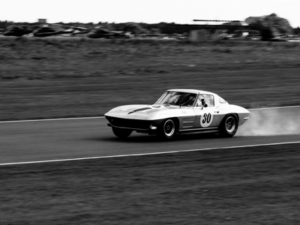
Why is my car making a noise when I brake at low speeds?
There are a few reasons why a car will make noise while braking at low speeds. Maybe obvious, but worn brakes will make noise a low speeds. Many vehicles are fitted with brake pad wear indicators that we call “squeaker tabs.” When the brake pads wear enough, this little metal tab contacts the brake rotor and creates a squeaking noise.
Some noise from the brakes is often normal, especially during the first drive of the day, after it rains, or if the car sits for an extended period of time.
There are a number of other noises that a car can make only when braking at low speeds. Maybe there is a “wooshing” noise coming from the brake rotors or backing plate. A rusty backing plate (the shield that protects the brake rotor from the elements) can become deformed and rub against the brake rotor, creating a noise. Maybe there’s a “squeaking” or “clunk” noise from a worn suspension component. Modern cars use a complicated multi-link inspection. This means there are more parts to absorb all of the conditions Minnesota roads throw at your car. However, this also means there are more parts that can wear out as they take a beating.
If there is a problem with the anti-lock brake system (ABS), there will be a noise that sounds like a grinding when braking.
Why would these problems cause my car to make a noise when braking at low speeds?

Brakes will make contact at different points depending upon the speed at which you’re braking.
Braking at low speeds creates a different situation than braking at high speeds. When the brakes are applied at high speeds, there’s a sudden change in the direction of the vehicle. At low speeds this change happens more slowly. This causes the entire car to shift on its suspension, which also changes the geometry of the suspension. These changes can cause the brakes to make contact in different ways, depending on the speed of the vehicle.
The biggest sign you can look for to help pinpoint the cause of the noise is the presence of other symptoms. Worn brakes can also cause a pulsing feeling at high or low speeds. If there is a worn suspension component, you may also notice a difference in how the car feels when hitting a bump or when taking a corner.
Vehicles are designed to handle any number of situations. They’re also designed to behave a certain way when presented with each situation. If a vehicle is making an unusual noise, this is an indication that something’s wrong. The noise might mean you need new brakes. It might mean you have a suspension or ABS problem. Any strange noise should be inspected by a professional. At Alexander’s Import, we’ll be able to determine whether your noise requires immediate attention, will soon require attention, or is just a matter of moisture buildup in the brake system.
What steps should I take to have repairs made, if any?

If a noise seems to be coming from the brake system, you’ll want to bring your vehicle in for repairs immediately
The first step to resolving the noise your car makes when braking a low speeds would be to know what is causing the noise. If it relates to the brakes, you’ll want to have it repaired immediately, as your vehicle’s brake system is a very important safety component.
Once you know what is causing the noise, you can make the decision to either repair the vehicle or wait until something more serious happens. The expert staff at Alexander’s Import can make a recommendation as to whether or not it’s safe for you to continue driving your vehicle in its current condition.
Can I prevent these issues next time?
If you’ve read any of our other blog posts, you might already know our recommendations for preventing the noise when braking at low speeds. The number one way to prevent your vehicle from making noises and having problems is to have regular maintenance and inspections. An inspection will reveal any brake or suspension wear, and assure your backing plates are in the correct position. If the problems are corrected in a timely manner, you’ll be able to avoid most noises. If you’re unsure of what’s causing your brake noises, schedule an appointment to have your vehicle inspected. When it comes to brakes, it’s always best to err on the side of caution.

